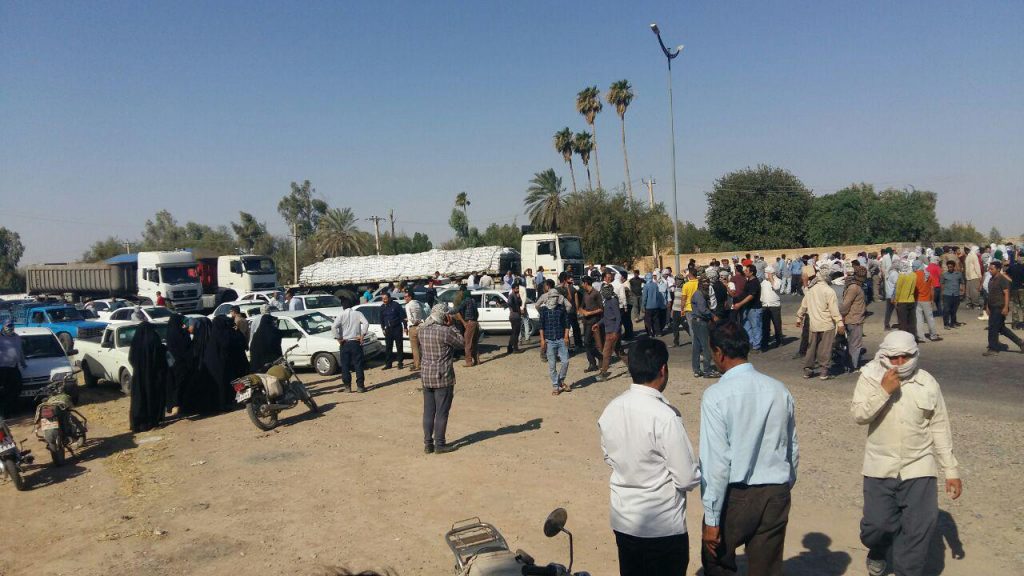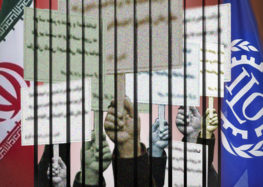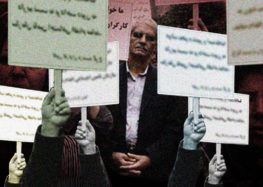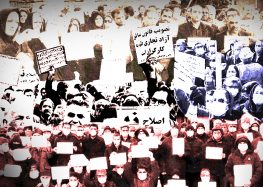Workers at Iranian Sugarcane Company Summoned to Court After Protesting Unpaid Wages

Workers of the Haft Tappeh sugarcane company protest for their unpaid wages.
Fifty-three workers of Iran’s Haft Tappeh Sugarcane Agro Industrial Company who have been peacefully demanding back pay and benefits since July 2017 have been summoned without charge to the courthouse in Shush, Khuzestan Province.
A statement by “a group of oppressed Haft Tappeh workers” released on August 7, 2017 said the vice president of the company, Siamak Afshar, had provided a list of names to the authorities.
“The summons issued against the Haft Tappeh workers states that there has been a complaint against them from the police,” said the statement. “However, we all know that the police are receiving favors from the company’s vice president and he is the one who gave these workers’ names to the prosecution.”
The statement added that the list “included some who were not present during any of the protests or were on vacation at the time.”
“The workers had to put their faith in God and unite in order to gain their legitimate rights,” added the statement.
On August 6, the state-funded Iranian Labor News Agency (ILNA) reported that summons had been issued to “at least 30 workers” of the company, which claims its Iran’s largest producer of sugar.
“The summoning of these workers has nothing to do with our industrial firm,” claimed Afshar in the ILNA article. “It was a decision made entirely by the judicial and police authorities in Shush, possibly in connection with labor actions in recent weeks.”
Thirteen Haft Tappeh workers were previously detained between July 25-26 for peacefully demanding their unpaid salaries and insurance allowances near the sugar plant.
The protest ended four days later after all the detainees were released and the company agreed to meet their demands. It is not known whether they have now been summoned to court along with the other workers.
Haft Tappeh began operations under state control in 1961. Employing more than 2,700 workers, its current annual sugar production capacity is estimated at 100,000 metric tons.
Iran is a signatory to the International Covenant on Civil and Political Rights, which mandates in Articles 21 and 22 freedom of association and guarantees the right to form trade unions, and to the International Covenant on Economic, Social and Cultural Rights, which guarantees in Article 8 the right of workers to form or join trade unions and protects the right of workers to strike.
The Iranian Constitution also contains provisions for such rights: Article 26 guarantees the right to form “parties, societies, political or professional associations,” and Article 27 states that “Public gatherings and marches may be freely held, provided arms are not carried and that they are not detrimental to the fundamental principles of Islam.”
Despite this, independent labor unions are banned in Iran, strikers are often fired and risk being detained, and labor leaders face long prison sentences on trumped up national security charges.






